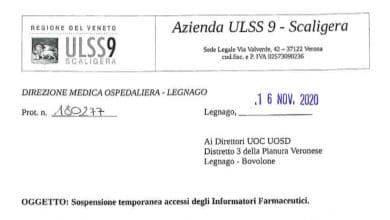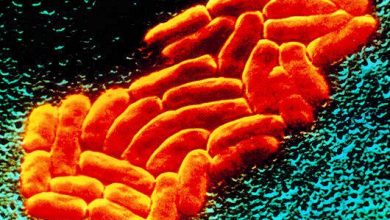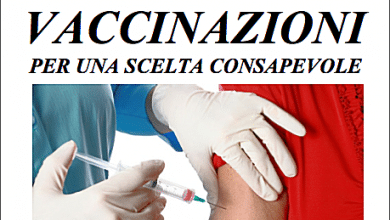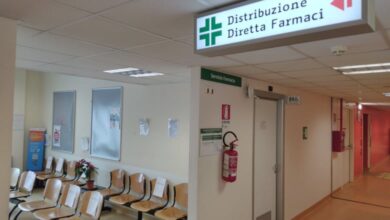
ROME - The Government of Change program (members of the Movimento 5 Stelle can vote for the program on the Russell platform, currently not working) starts from a text that – for the health sector – can be defined almost exclusively with an English term: Marketing Jargon. Literally translating this term is complicated, we could use the word "commercialese" but the meaning is very simple: when we talk about Marketing Jargon we say everything, we say nothing and we stuff it with generic objectives on which there is no absolute clarity.
 The government of change therefore starts with a document that is the most political one can find. We want to guarantee everyone a hospital assistance response in the acute phase of the disease but we want to intervene on waiting times in the Emergency Department, reducing access times by implementing structures with a low intensity of care, which are therefore not hospitals but delocalised nursing homes such as white dots or health and social care points. So more hospital, but also more territorial response. Obviously, in the meantime, the role of the family doctor or general practitioners must be more central, but the role of the specialized doctor must also be stronger. So more doctors are needed, but also more OSS and more nurses as established by article 14 of law 161/2014.
The government of change therefore starts with a document that is the most political one can find. We want to guarantee everyone a hospital assistance response in the acute phase of the disease but we want to intervene on waiting times in the Emergency Department, reducing access times by implementing structures with a low intensity of care, which are therefore not hospitals but delocalised nursing homes such as white dots or health and social care points. So more hospital, but also more territorial response. Obviously, in the meantime, the role of the family doctor or general practitioners must be more central, but the role of the specialized doctor must also be stronger. So more doctors are needed, but also more OSS and more nurses as established by article 14 of law 161/2014.
Then we want to reduce waiting times for healthcare services, obviously eliminating waste (usually this means a cut in services, but we postpone because we don't want to make a piece of opinion, but news ed), and personalize the assistance paths for make them adequately accessible to citizens, also making them participate in decisions in the health sector, providing for a representation of patients in the general management so as to bring new ideas for discussion and in-depth study.
On the other side of the chain, however, at the head of the healthcare companies, administrative-political personnel must no longer be placed, but administrative-administrative personnel who must be selected according to precise - but not given - technical-scientific criteria, with the possibility of supporting these professionals through advanced training courses so that the activities and organization of health services can be improved equally throughout the national territory.
Therefore, the citizen is needed alongside the manager, but the manager must no longer be a politician, he must be a manager of the health professions with ability and competence, who will have to clash in management with the representation of the citizens, who has no technical skills or even scientific. Finally there is the viral vaccine issue, with a final footnote in the government contract that deserves to be read directly.
Even with the aim of protecting individual and collective health, guaranteeing the necessary vaccination coverage, the issue of the right balance between the right to education and the right to health must be addressed, protecting pre-school and school-age children who could be at risk of social exclusion.
To make it easier for you to understand, we translate the text of this final note:
Even if we want to protect health and avoid epidemics, we must think about balance. Between the right to education and the right to health, we protect the five children and their families who are not up to date with vaccinations and who have not been able to obtain medical certificates which prevented hexavalent and quadrivalent vaccinations for the little ones. So with the motivation of the right to education we will go to abolish the vaccination obligation in toto.
HERE IS THE COMPLETE TEXT OF THE HEALTH SECTOR OF THE LEGA-M5S GOVERNMENT PROGRAM
It is a priority to preserve the current management model of the mainly publicly funded health service and to protect the universal principle on which law n. 833 of 1978 establishing the National Health Service. Protecting the national health service means safeguarding the state of health of the country, guaranteeing equity in access to treatment and uniformity of essential levels of assistance.
Regional autonomy in the organization of health services must be preserved and protected by maintaining the task of indicating essential levels of assistance to the national government, the objectives that the health system must pursue and guaranteeing citizens the correct and adequate provision of health services provided by the systems regional.
From this point of view, it is believed that various structural actions are and will be useful, starting from an incisive intervention on health management, or on health managers, who must be adequately and previously trained to ensure the sustainability and quality of the health system and chosen according to competence and merit, not on the basis of political or party logic. The harmful and archaic relationship between politics and health must be rescinded by providing for new and different criteria for the appointment of both the general directors themselves and the health and administrative directors, as well as the managers of complex structures. It is also necessary to ensure transparency and evaluation of the performance of the general managers in terms of achieving health and budgetary objectives in the management of companies. It must also be ensured that those additional resources correspond to more quality services for citizens.
Healthcare will have to be financed mainly by the tax system and, therefore, the participation of individual citizens will have to be reduced to a minimum.
It is necessary to fully recover all the economic resources stolen in recent years with the various public finance measures, guaranteeing effective economic sustainability of the essential levels of assistance through the refinancing of the national health fund, so as to solve some of the structural problems.
The recovery of resources will take place thanks to an effective fight against waste and inefficiencies, and thanks to review of pharmaceutical governance, the implementation of the centralization of purchases, the computerization and digitization of the NHS, the review of the agreements and accreditation procedures, the fight against corruption and the promotion of transparency.
It is necessary to carry out the computerization of the NHS with particular reference to the Electronic Health Record, digital prescriptions, the dematerialisation of reports and medical records and online bookings and payments, so as to allow for real transparency and effective control in terms of immediate verification and publish management results. It is also necessary to give evidence of the relationship between the reimbursements paid by the NHS and the clinical result in terms of efficacy and appropriateness; launch and implement telemedicine thanks to all the innovative technologies, in order to reduce patient movements, cut costs and ensure higher quality home care. It is necessary to guarantee, implement and integrate social and health services, investing in prevention and overcoming the "hospital-centric" model.
The hospital assistance response in the acute phase of the disease must be guaranteed and at the same time it is necessary to develop territorial services in a widespread manner, with organizational standards and with access costs to homogeneous and pre-defined services, ensuring the care of the user, through a specific social-health path and through more suitable prevention services. It is essential to implement territorial coordination, so as to orientate and direct users to the available territorial and hospital services, favoring the appropriate choice of the place of care.
Social-health integration is fully achieved when the need for health is continuously satisfied in the health and social protection components. Social-health integration involves, also in economic terms, the different involvement of the Regions and Municipalities, whose planning tools are fundamental for realizing an effective co-planning to satisfy the assistance needs of the territory and of the citizens who live there. It is necessary to ensure adequate economic and structural resources for local and home health and social care services in a transversal logic that deals with the needs of the individual on the one hand and the needs of the local community on the other. With a view to guaranteeing effective and widespread support for local services, the role of general practitioners should also be reviewed. We will strengthen and implement the role of the general practitioner who must be the main player in the patient care chain.
It is essential to intervene on waiting times in the Emergency Department, reducing access times through the implementation of low-intensity care structures. It is necessary to outline personalized assistance and care pathways close to the citizen as well as being adequately accessible, reorganize the system of access to services with a view to reducing waiting times, also eliminating any form of waste deriving from an inappropriate organization of services and assistance and from inadequate health governance, from a lack of technological and digital modernization of the national health service. It is necessary to ensure that there is no imbalance between institutional services and those provided in the private sector, especially with regard to waiting times. The problem of waiting times is also a result of the widespread shortage of specialist doctors, nurses and health personnel . It is therefore essential to hire the necessary medical and health personnel, also to implement article 14 of law no. 161/2014.
The places for specialist training of doctors should be determined by the real care needs and also taking into account retirements, thus ensuring a harmonization between places in the degree courses and places in the specialization course. The reality is that this harmonization does not exist and places for specialist training are in fact determined by two factors: the capacity of universities to welcome doctors in training and the funding of scholarships by the MIUR. Therefore, if on the one hand it may be necessary to increase the number of graduates in medicine, also by reviewing the capped number, on the other hand it will be necessary to increase the scholarships for postgraduates. It is necessary to allow more widely that the newly graduated doctor has access to the health facility to achieve the theoretical and technical-practical skills and the autonomy necessary to carry out the chosen medical specialization (Article 22 of the "Health Pact" of 2014).
The problem of the aging of the population and the subsequent problems related to the chronicity of the diseases and co-morbidity must be addressed. From this point of view it is necessary to guarantee the capillary diffusion of socio-sanitary structures with a low intensity of care. The organization of pathways and support structures for chronic-degenerative and oncological pathologies must also be implemented and adequate resources must be guaranteed for the direct and personalized assistance of subjects affected by rare and chronic diseases. Biomedical research carried out within the health system and by universities must also be strengthened.
The first victims of a social system centered on utilitarianism and profit, together with the disabled in any capacity, inevitably become the elderly. It is necessary to make it mandatory to include a significant representation of patients (direct or family members) at the top management of the care facilities dedicated to the elderly directly included in the NHS or for the affiliated facilities. Only the direct and capillary control of the interested parties can guarantee compliance with those parameters of civilization of living, too often disregarded in structures that frequently take the form of atrocious terminals of "existences no longer functional to the system", rather than environments in which to set out serenely and with dignity at the natural end of one's life.
Even with the aim of protecting individual and collective health, guaranteeing the necessary vaccination coverage, the issue of the right balance between the right to education and the right to health must be addressed, protecting pre-school and school-age children who could be at risk of social exclusion.





